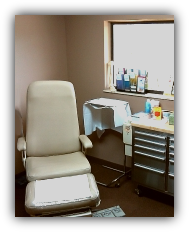- Be there when you need them. Podiatrists treat conditions of both the foot and ankle. If you have pain or questions about your feet, they are well qualified. Each podiatrist goes to a medical school specifically for foot and ankle. Today’s podiatrist also does a three year surgical residency. If you have consistent pain or problems, you don’t have to just live with them. Come see us and we can answer questions and give surgical and non surgical treatment options for anything from discolored or ingrown nails to bunions and fractures.
- Treat your whole family. Our podiatrists are well qualified to treat feet and ankles from birth. If you have questions about flat feet or otherwise bring your child so they can be answered. Some things may be normal, while others can be treated easily so that they may have decreased pain and less problems later on in life. No question is silly when it comes to children. Similarly the elderly are treated for calluses/corns, bunions hammertoes and more! Difficulty with balance is evaluated and many times can be addressed at the level of the foot and ankle. Of course active people also have foot issues at times as well. All can be treated in the same spot!
- Keep you on the road to success. Once your pain or problems are improved with treatment, a plan is made to reduce the risk of your problem coming back. Your podiatrist will educate you and give you the tools to know how to recognize the problem sooner in the future. Little to no pain is great, but if a few simple things can keep it away, we will let you know.
- Prevent major issues in the future. If you are diabetic, speaking with your podiatrist can open your eyes and make you look more at your feet. Diabetes can affect many body systems including blood flow, nerves, kidneys, healing time and eyes. Decreased sensation and decreased healing time can be a very bad combination causing ulcerations and sadly, amputation. An appointment to evaluate your risk and give you the tools to prevent future issues is very important.
- Make your back, hips, knees and feet feel better. Much of the way we feel and walk depends on our feet. If our feet are not supported correctly it can put strain on the joints of the foot, ankle, knees, hips and back. The podiatrist can evaluate your walk and look at the bones of your foot with an xray to determine what type of support you need. Support can come in a variety of different ways including over the counter inserts, different types of shoes, braces and custom made orthotics. The doctors will find a plan that you like, are comfortable with wearing and provide maximum relief.
Dr. James Hirt and Dr. Erin Holdren Otis are podiatrists at Fenton Foot Care. They are ready to help you with your footcare needs.



